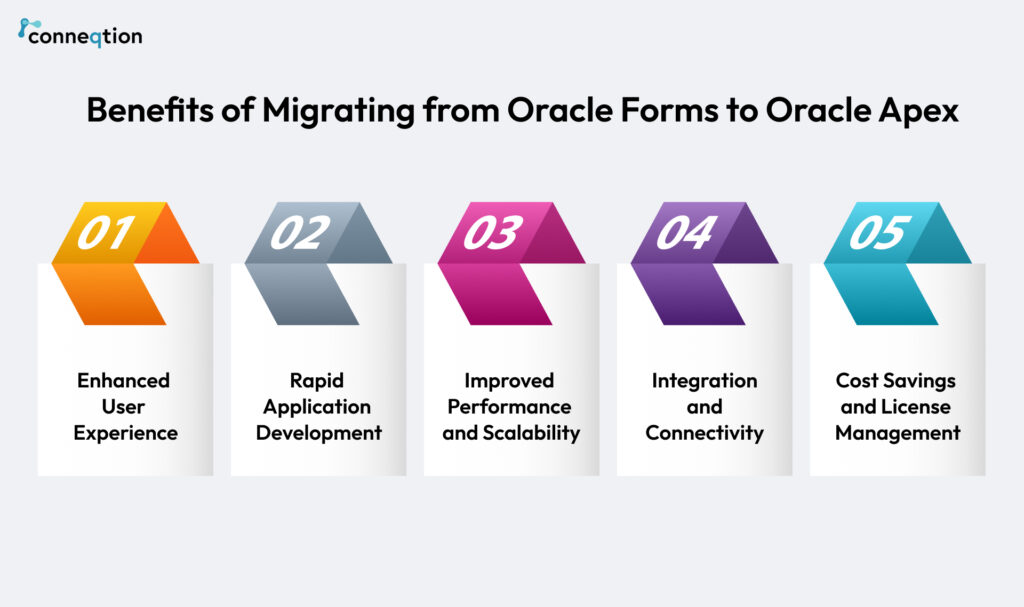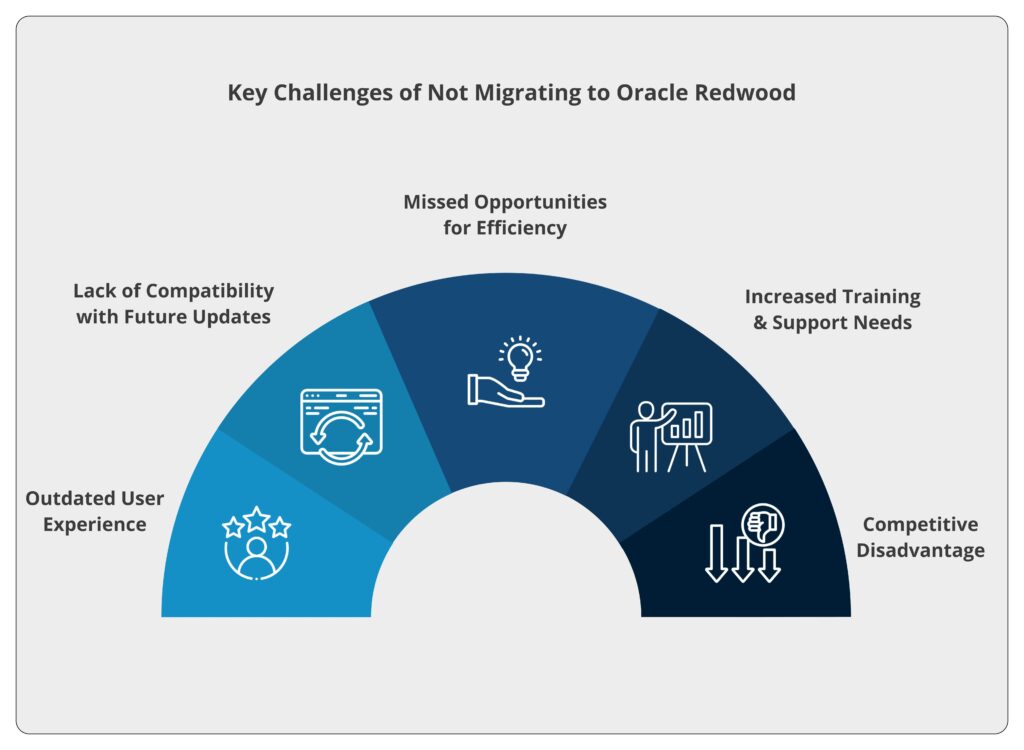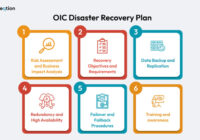Oracle Forms stands as one of the most extensively utilized application development tools on a global scale. It is renowned for developing enterprise applications that maintain a strong integration. We’ve crafted this article to make sure it reaches more of our readers. Keep reading to learn the advantages of Oracle Forms to Oracle APEX migration and explore the features of Oracle APEX.
Why migrate from Oracle Forms to APEX?
The reason behind the migration of all the enterprises is that Oracle is gradually shifting away from this platform, as Oracle Forms is an ageing platform. This means that businesses that continue to use Oracle Forms are at risk of security vulnerabilities and bugs. There are many good reasons why businesses might want to migrate their Oracle Forms applications to Oracle APEX. Oracle APEX is a powerful and versatile application development platform that offers several advantages over Oracle Forms. If you are considering migrating your Oracle Forms applications, it is best to learn more about APEX and to consider the benefits that it can offer your business.
Is Oracle APEX considered the best alternative?
One of the biggest reasons for consideration for Oracle APEX is that it is constantly updated with new features and functionality. This makes it a great choice for organizations that need to modernize their applications and take advantage of the latest technology. It is a more secure, performant, feature-rich, and affordable platform that is also easier to use. In addition, Oracle APEX has a large and active community of users and developers who can provide support and help you with your projects.
1. Quick Development
In software development, time is the most crucial factor! Oracle APEX streamlines development time for organisations. The platform’s declarative approach, along with various pre-made components and user-friendly design tools, enables swift application creation. Utilizing drag-and-drop features and built-in wizards, businesses can fulfil evolving needs and expedite application deployment. APEX also provides robust functionality through PL/SQL coding, facilitating easy transfer of existing applications to APEX for rapid utilization.
2. Free-of-charge solution
When making decisions about technology migration, costs are a key factor. What sets Oracle APEX apart is that it doesn’t come with any added expenses. Included in the Oracle Database license, APEX offers an economical solution for updating applications. By using APEX, organizations can create web-based applications without requiring extra licenses or investments in development tools, resulting in substantial cost reductions.
3. Optimal Application Performance
Application performance is essential, particularly in scenarios with a significant user load. Oracle APEX effectively tackles this issue by providing excellent efficiency through minimal CPU consumption, streamlined SQL execution, and efficient caching methods. These capabilities empower applications to manage heightened user concurrency without straining system resources. With Oracle APEX, organizations can accommodate a greater number of simultaneous users while upholding top-notch performance and responsiveness.
4. Low-Code Development Platform
Oracle APEX is well-known for its low-code development capabilities, fundamentally transforming the application building process. Through its visual development interface and drag-and-drop components, both seasoned developers and non-developers can swiftly construct applications with minimal coding demands. Additionally, APEX’s compatibility with PL/SQL ensures seamless knowledge transfer, facilitating a smooth transition to this platform. In essence, the user-friendly design and simplified learning curve of APEX lead to reduced training requirements, enabling organizations to harness their existing expertise and expedite application development.
5. Frequent version releases
When we’re planning to migrate from one platform to another, the thing we usually think about is whether that new platform has frequent updates. Oracle APEX gets it, and they make sure to stick to a regular schedule of updates. They’re always improving the platform, fixing bugs, and adding new stuff with each release. When you switch to APEX, you get all the latest new features, security boosts, and higher performance. Going with APEX means your applications stay up-to-date and offer a competitive edge.
Recommended for you: Why you should choose Oracle Apex for your business?
When will Oracle Forms reach its end?
According to the latest report from Oracle, Oracle Forms will continue to be supported until December 2025. This means that businesses that are still using Oracle Forms will have until then to migrate to a newer platform, such as Oracle APEX. So, it is important to make the switch to a newer platform sooner rather than later.
5 Key Steps involved in the transformation of Oracle forms to Oracle APEX Migration
The migration process can be broken down into the following steps:
1. The first step is to assess the application and determine the scope of the migration. This includes identifying the components that need to be migrated, as well as the level of effort required.
2. Once the assessment is complete, a migration plan can be developed. It involves estimated time, budget, and team allocation.
3. Next is the execution step, which involves the migration process, like data, UI, and logic migration.
4. Once the migration is complete, the application must be tested to ensure that it is working properly. This includes functional, performance, and security testing.
5. Once the application has been tested, it can be deployed to production.
Conclusion:
To wrap things up, it’s worth emphasizing that Oracle APEX stands out as a highly favorable option when it comes to businesses seeking to modernize their applications and tap into the latest technology. The ongoing shift towards the APEX platform is a clear indicator of the dynamic change enterprises are embracing. We strongly recommend migrating from Oracle forms to the Oracle APEX as soon as possible. At Conneqtion, we proudly boast a proficient team comprising of Oracle-certified experts who bring a wealth of knowledge to the table. Our team’s deep understanding and adeptness in implementing industry best practices for substantial-scale migration projects set us apart. We strive to streamline the entire process, making it as simple as possible for you. Don’t hesitate to reach out and initiate the journey with us today. Your future success is our top priority!








Biju
Hi we are planning to migrate our forms applications to Oracle Apex..
Karan Tulsani
Hi Biju,
Thanks for your comment. Please contact us on [email protected] so we can arrange a discovery call about how we can help you migrate from Forms to Oracle APEX.